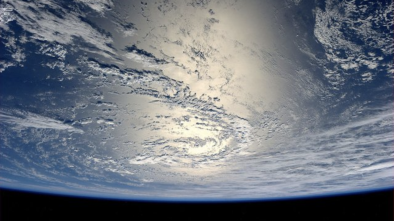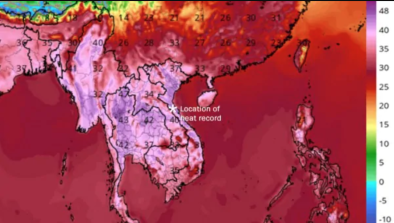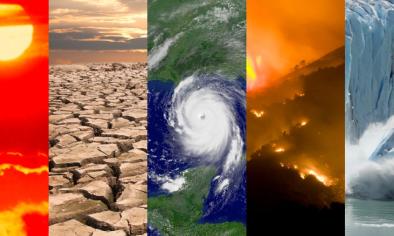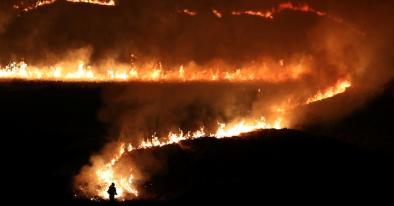Blistering Australian heat is shattering records and killing wildlife

Australia is in the grips of what has become a historic, unrelenting series of extreme heat events that have broken all-time temperature records.
The big picture: The heat waves, which have touched every state and territory in the country, began in November and have extended through January. With temperatures exceeding 120°F (48.8°C) in some locations, this summer may go down in history as Australia's hottest on record. In addition, January is likely to be the nation's hottest month on record.
By the numbers: The heat intensified this week in parts of Australia, threatening the country's all-time record high temperature of 123.3°F (50.7°C). According to Weather Underground meteorologist Bob Henson, at least 28 locations in Australia set all-time record highs on Thursday.
- In Adelaide, the capital of South Australia, the official weather reporting station of West Terrace peaked at 115.9°F (46.6°C) on Thursday — the highest temperature ever recorded in any of Australia’s state or territorial capitals, according to Australia's Bureau of Meteorology (BOM). The previous all-time high in Adelaide had stood for 130 years.
- The four days from Jan. 12 to 15 were each among the top 10 hottest on record for the country on the whole, the BOM found.
- Noona, located in New South Wales, set a record for the highest minimum temperature ever recorded in Australia of 96.6°F (35.9°C) on Jan. 18. This means that for 24 hours, the temperature never dipped below that level.
- According to Henson, that's the highest recorded minimum temperature anywhere on Earth during January.
...
Between the lines: While detailed attribution studies have yet to be carried out on this ongoing event, the odds of extreme heat events have increased dramatically in recent years due to human-caused global warming. For example, a study published in 2017 found that climate change has boosted the odds of record-breaking heat across more than 80% of the surface area of the globe for which reliable observations were available.
Related Content






